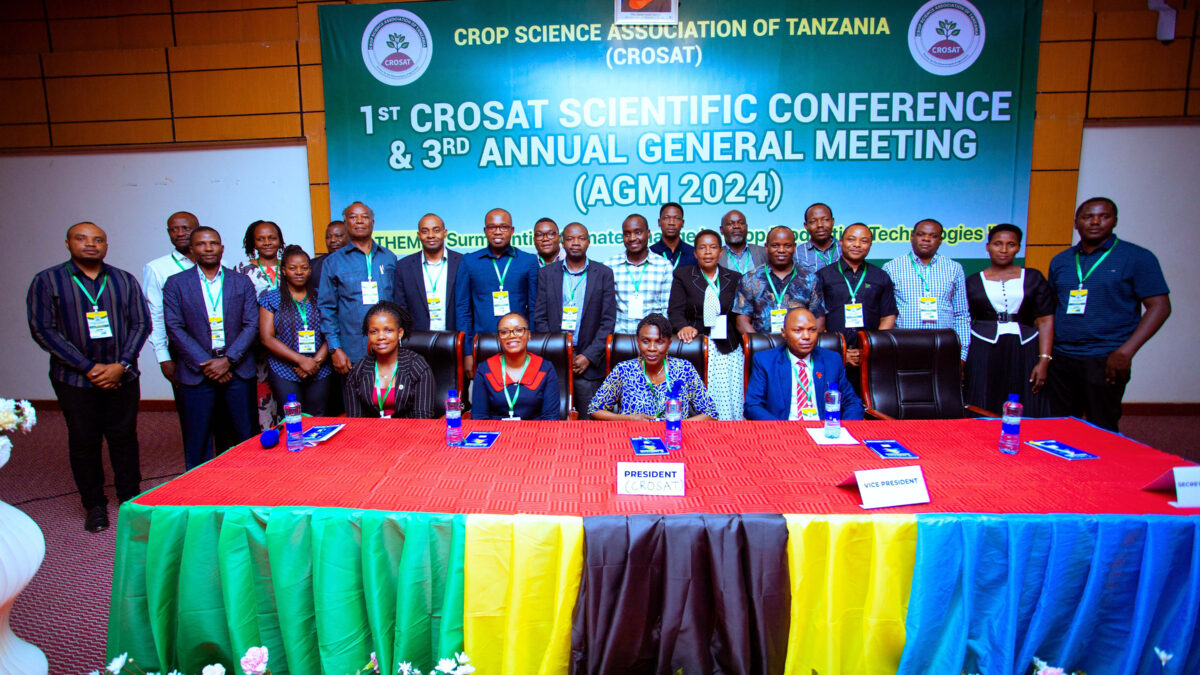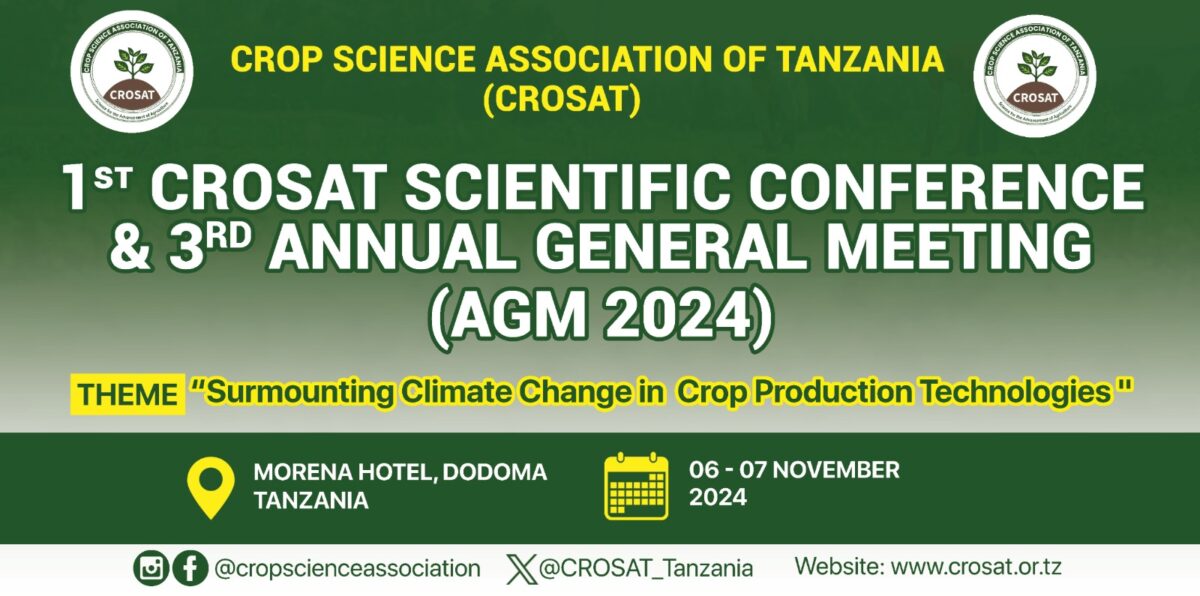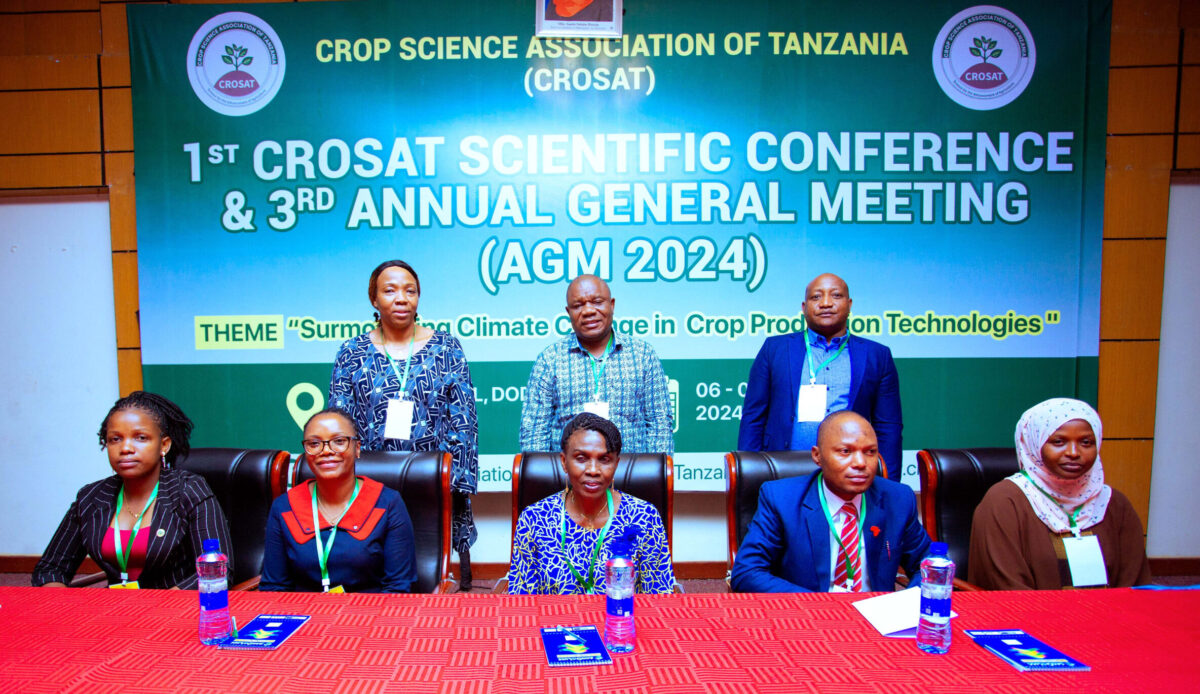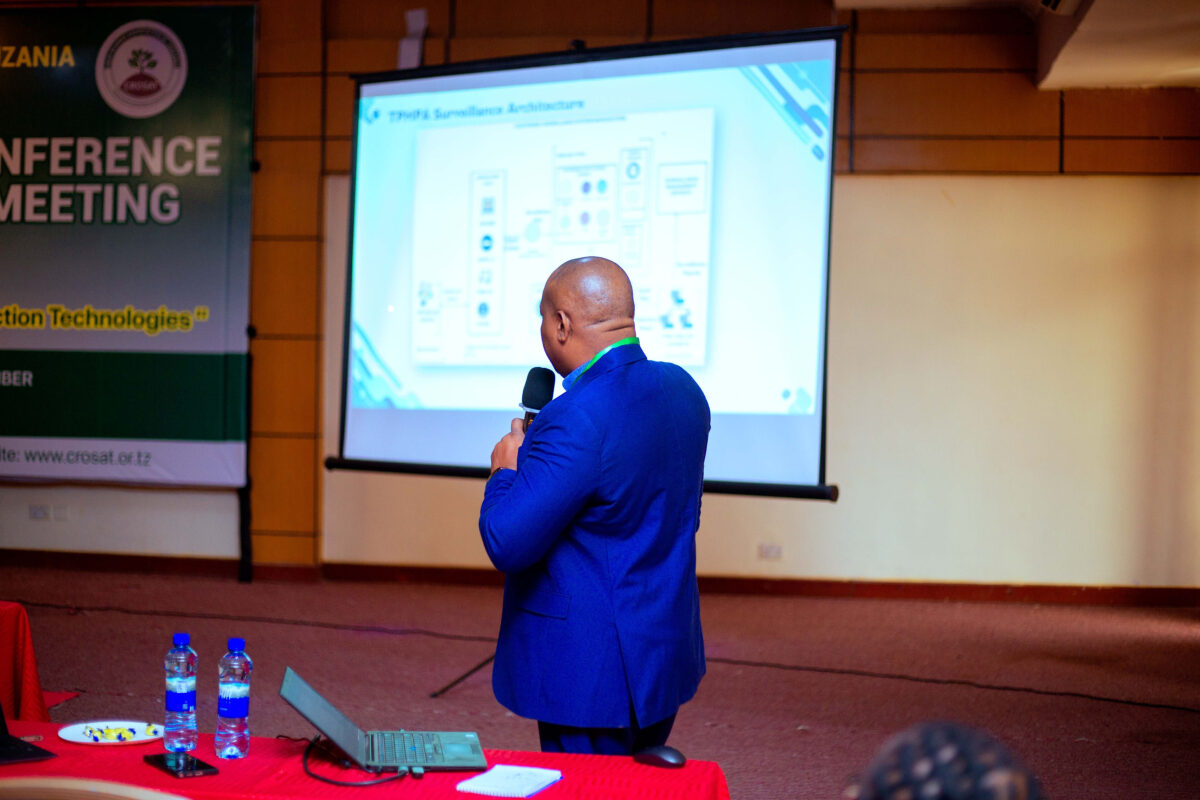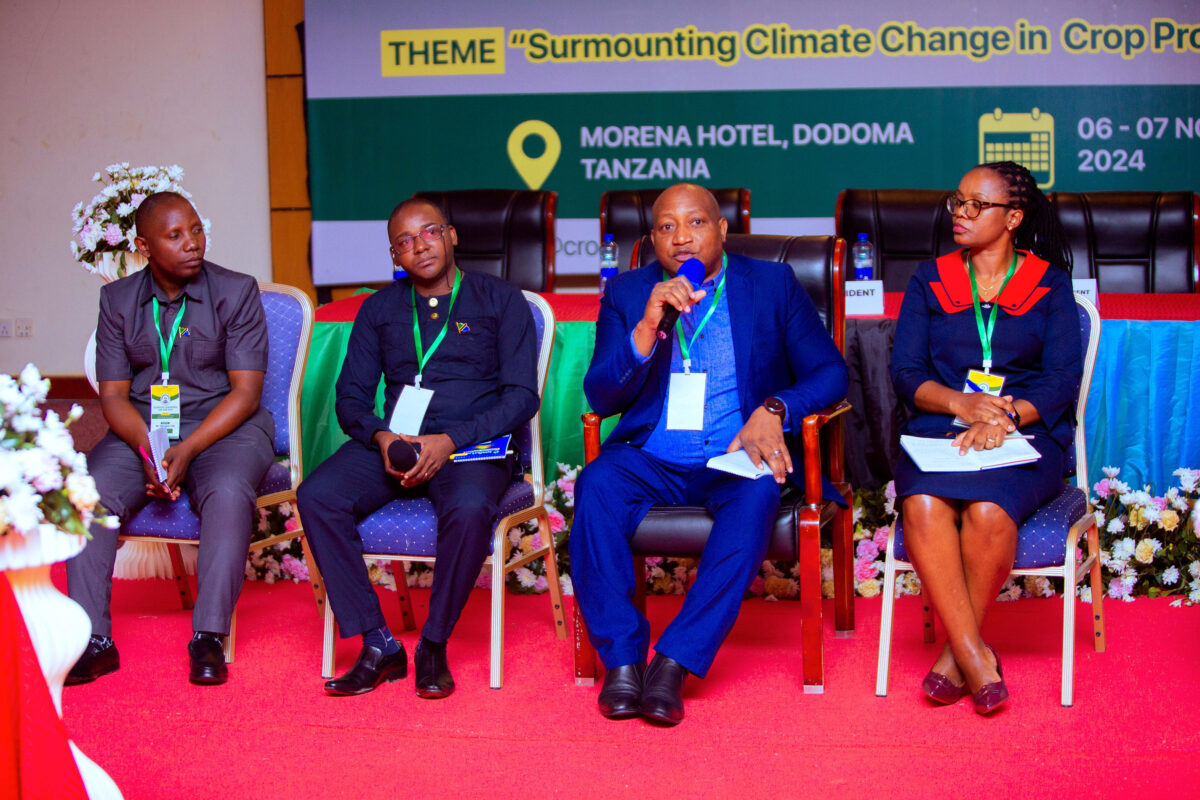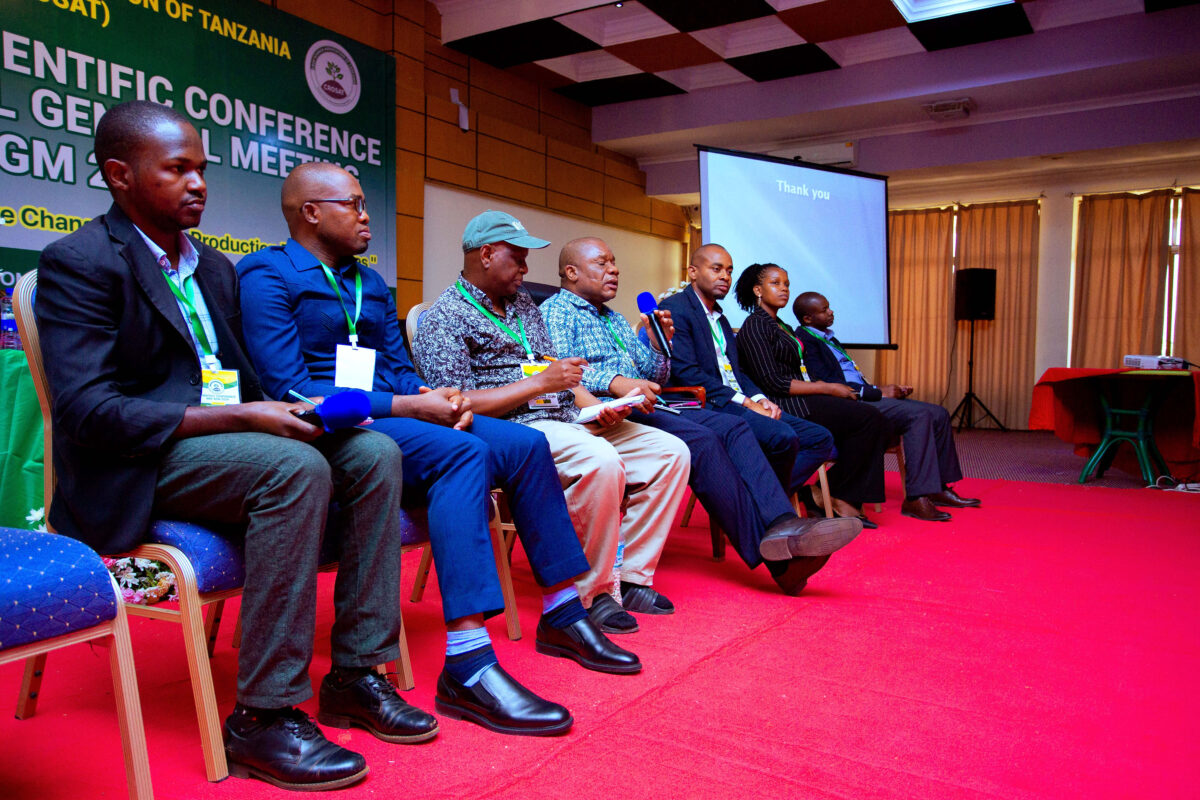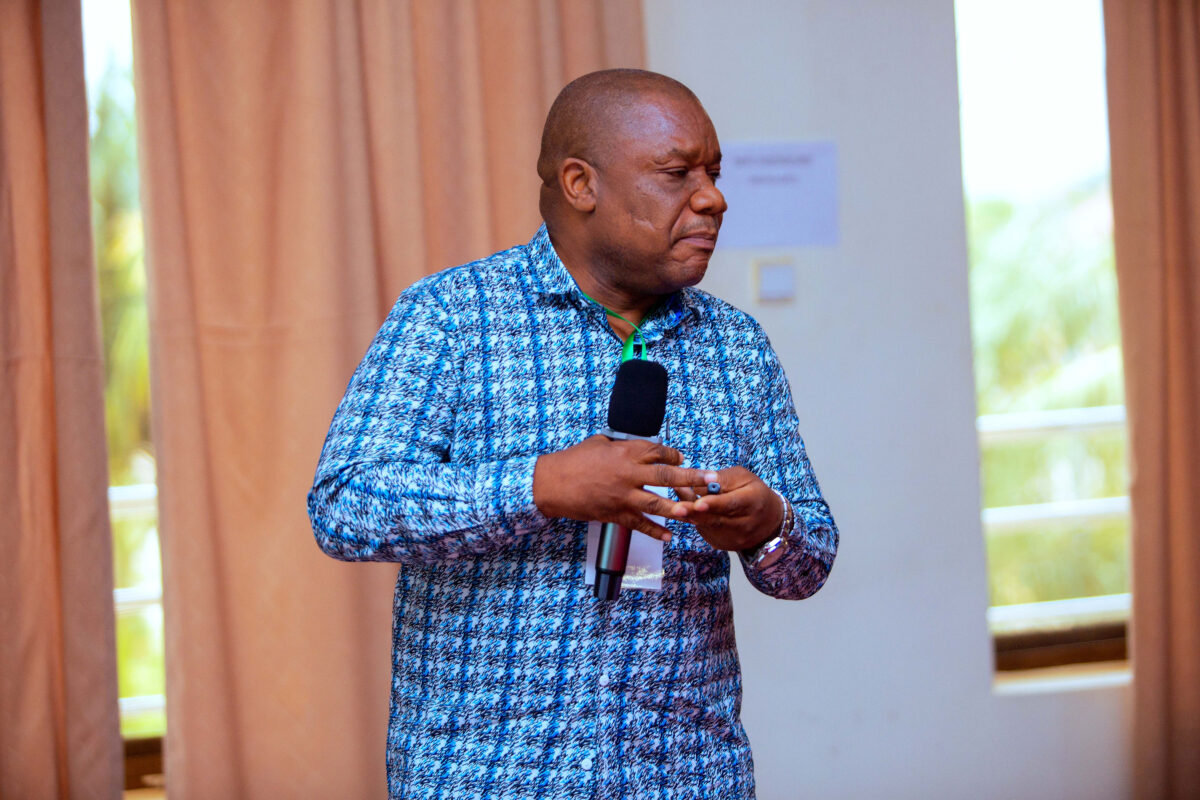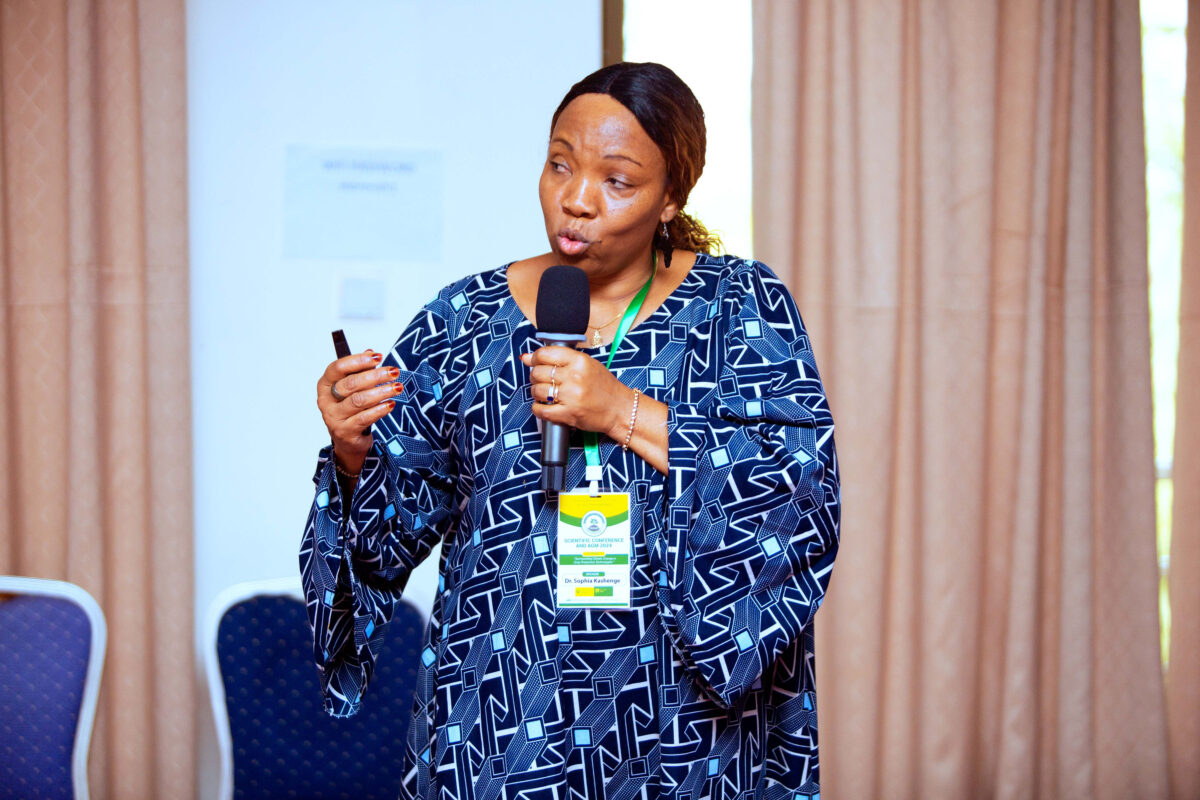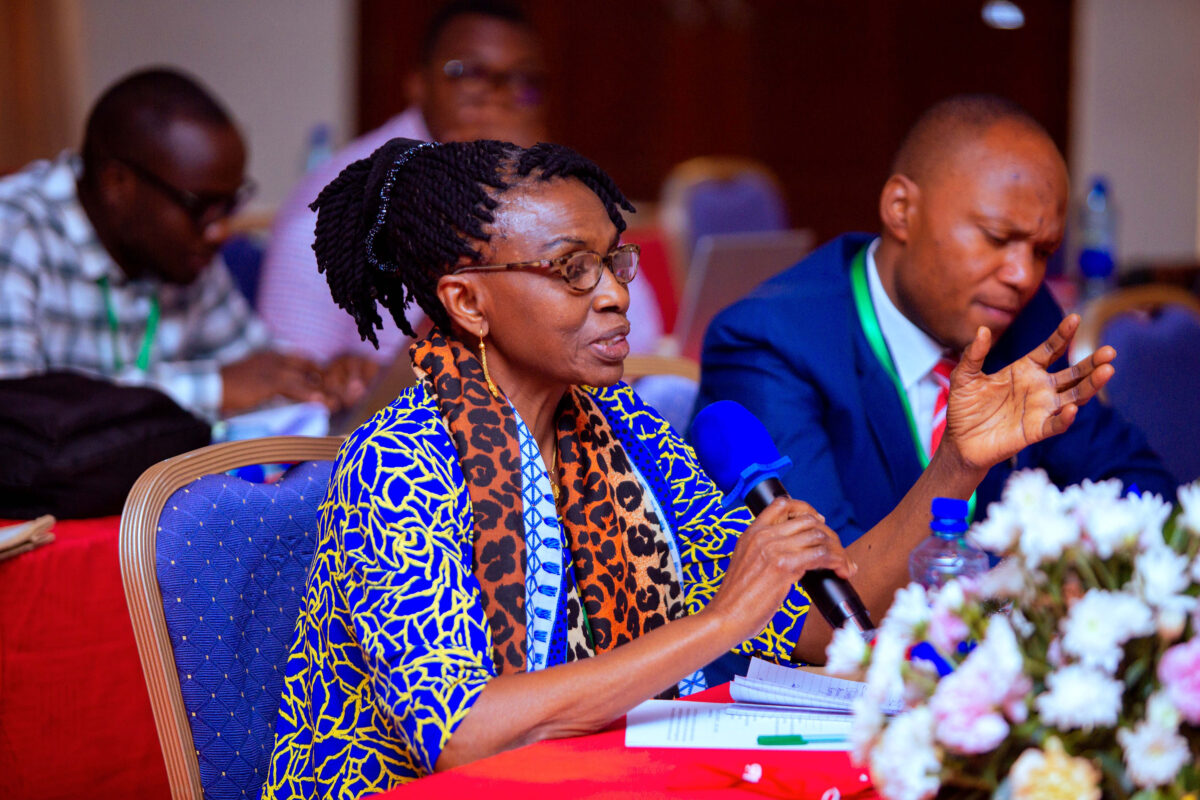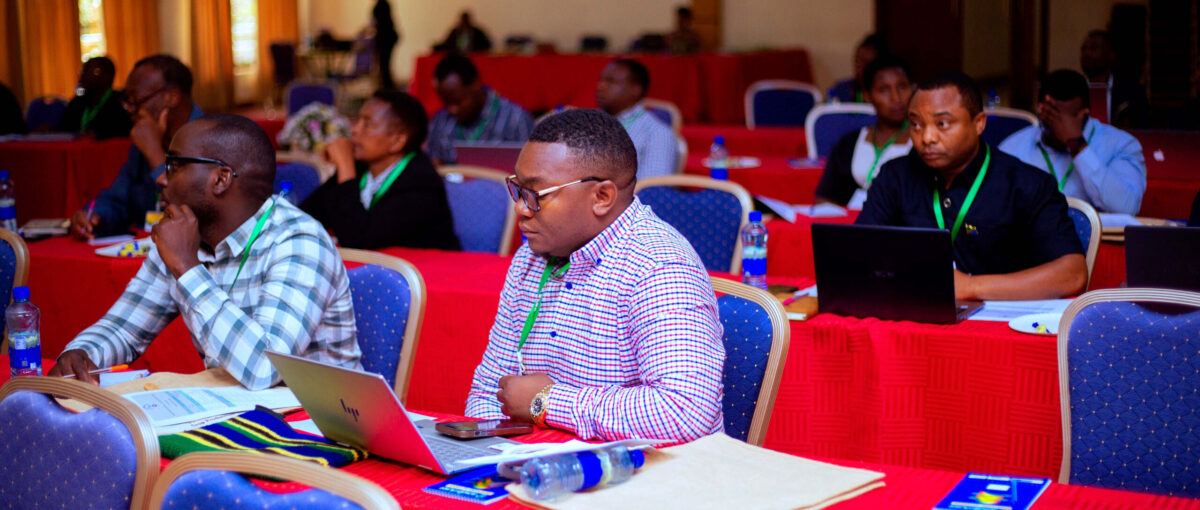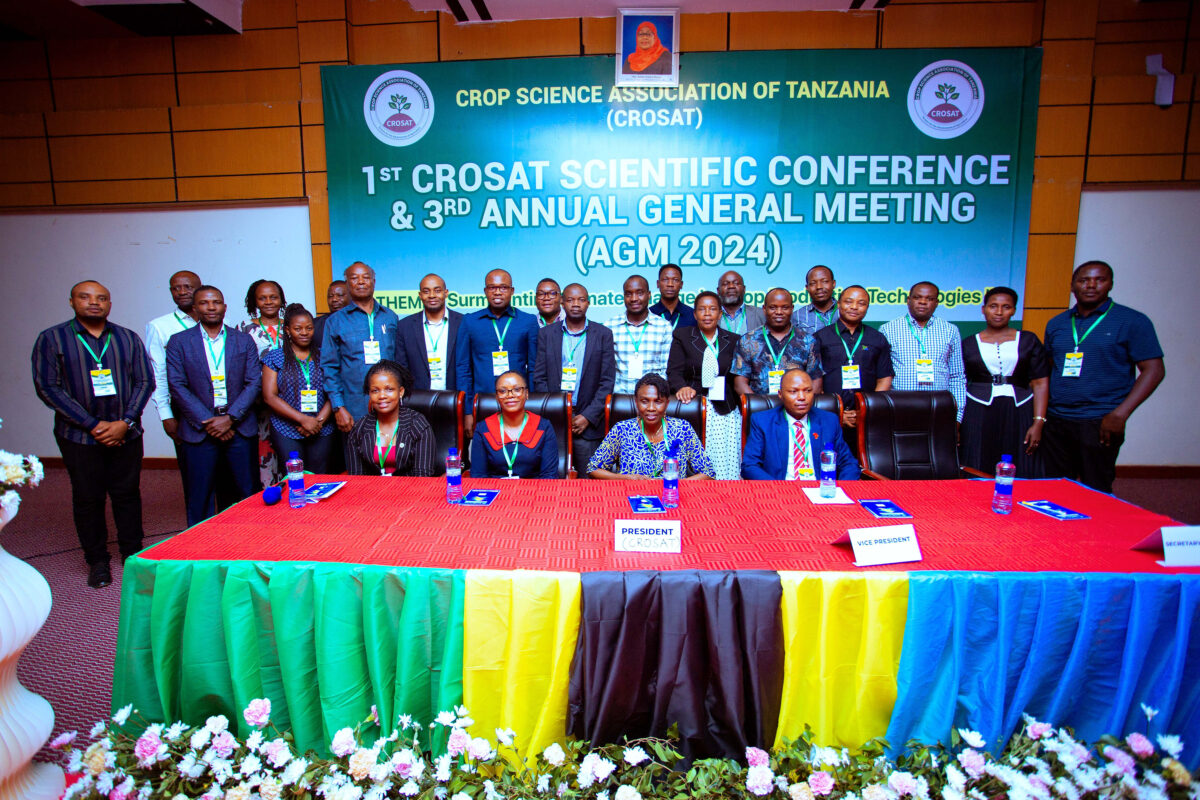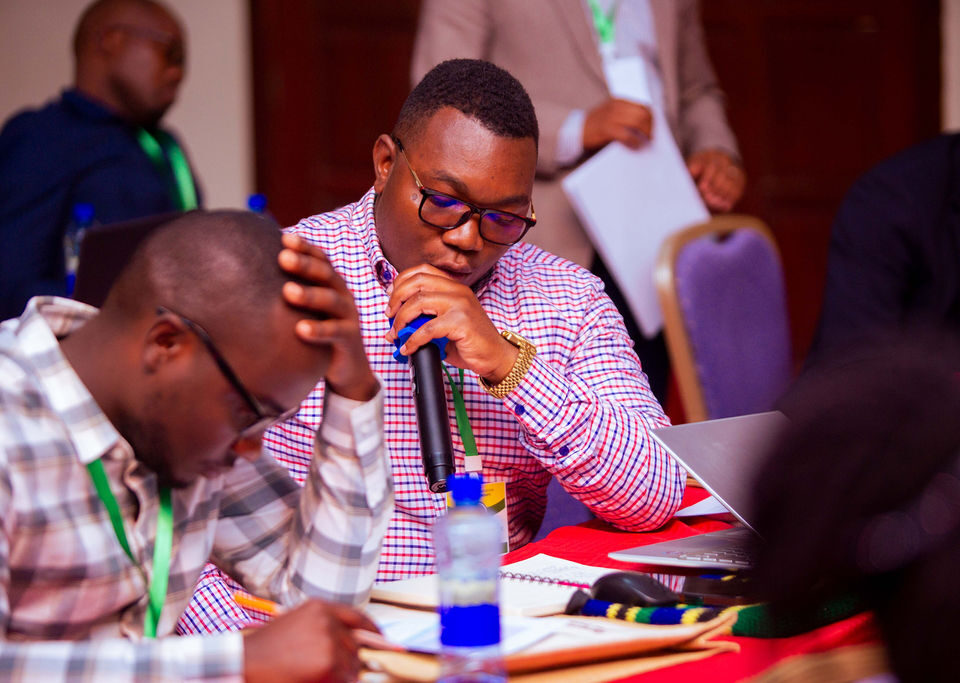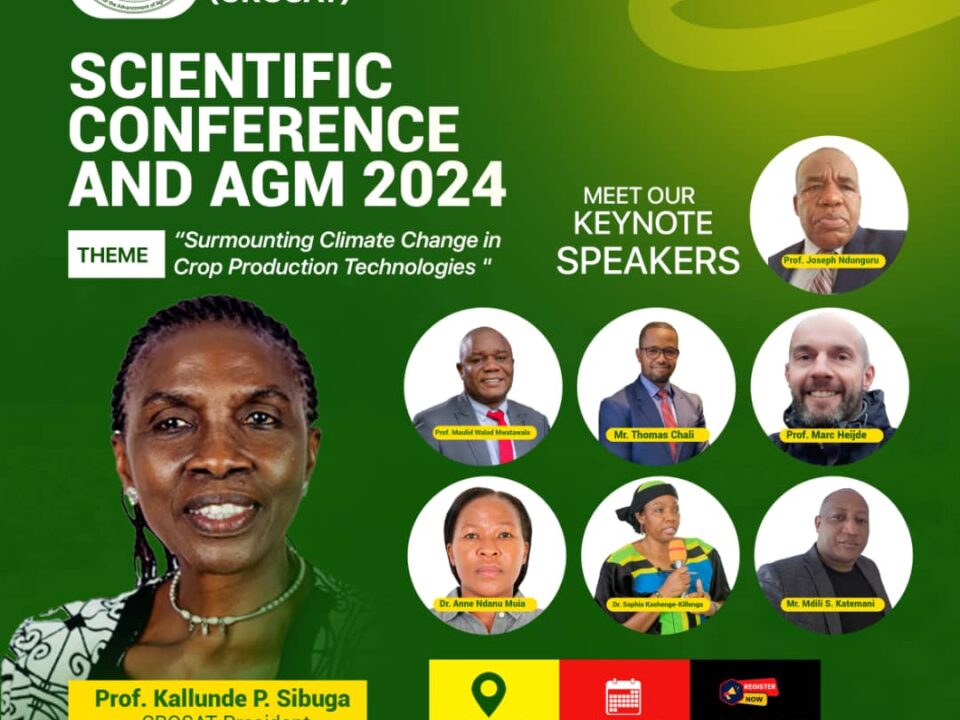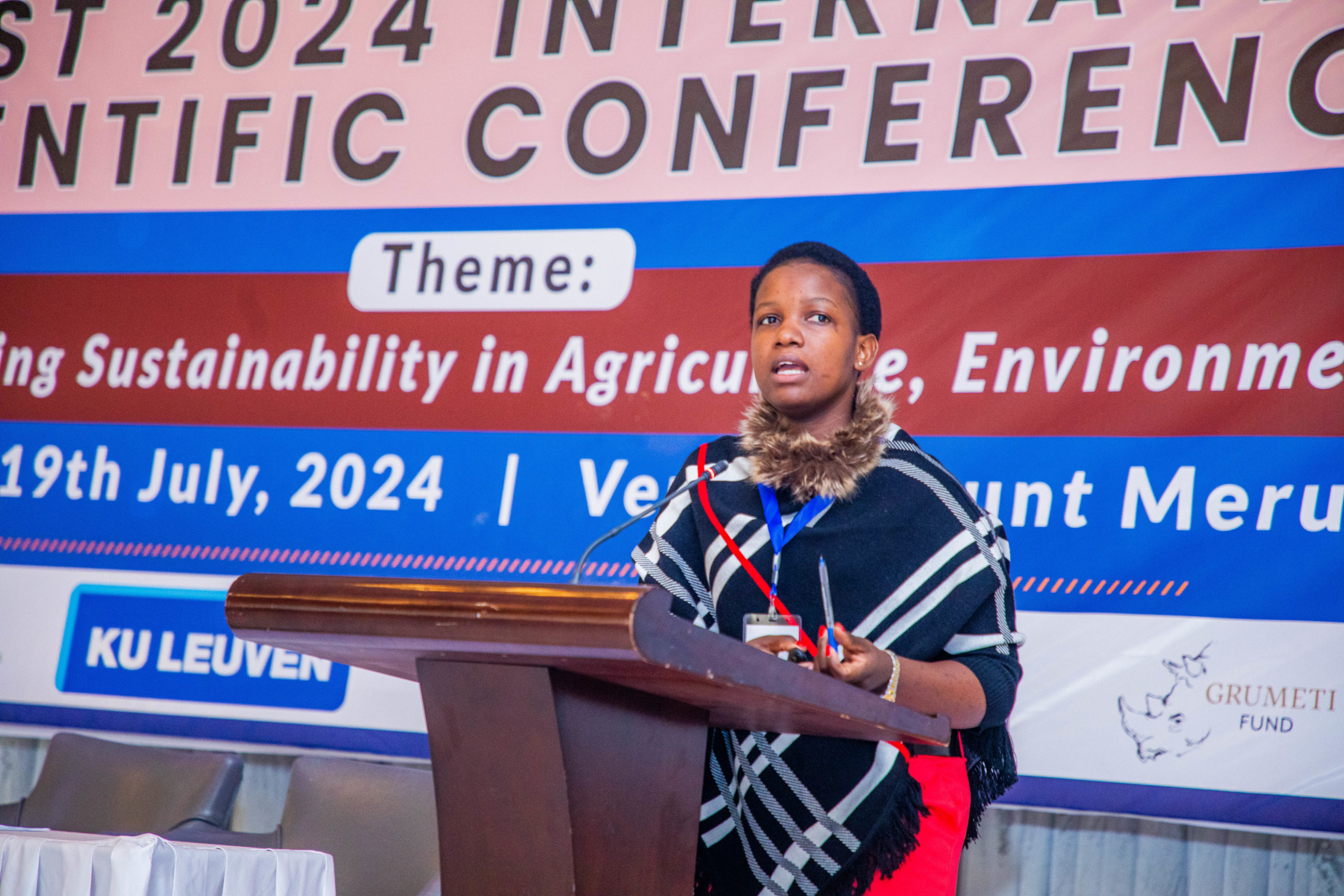
CROSAT Scientific Conference Feedback
November 7, 2024The Crop Science Association of Tanzania (CROSAT) held its inaugural scientific conference on November 6th and 7th, 2024, at Morena Hotel in Dodoma. With the mission of enhancing the recognition and contribution of crop sciences to national development, CROSAT works closely with the scientific community, the government, non-state actors, and agricultural communities. The conference theme, “Surmounting Climate Changes in Crop Production Technologies,” underscored the urgent need to address climate change through innovative agricultural practices.
The event brought together a wide range of speakers, including practitioners, farmers, and policymakers, to discuss critical issues in crop science. Key topics presented included crop pests and protection technologies, agroecology, the crop value chain, seed systems, and the role of biotechnology in crop improvement. This diverse array of subjects aimed to provide a comprehensive approach to surmounting the challenges of climate change in agriculture.
Highlighting the importance of plant health, Mr. Mdili Katemani, Manager of Plant Health Compliance and Trade Facilitation at TPHPA, emphasized the need for a robust plant protection system. “Tanzania can establish a strong plant protection system by making sure that there is effective communication, collaboration, and access to reliable scientific information on pests and diseases,” he stated. “Furthermore, we should continue to impose strong plant health legislation and standards, coupled with shared responsibility among all stakeholders.”
Agroecology was another focal point of the conference. Presenters noted that while conventional farming practices are effective, they often come at a cost to the environment. Prof. Maulid Mwatawala, Deputy Vice-Chancellor (Academic) at Sokoine University of Agriculture (SUA), discussed the benefits of agroecology. “Complex agroecology concepts can be unpacked into simple, but effective practices that help maintain a functional biodiversity,” he explained. “These practices ensure the safety of the produce and environment, and reduce the cost-benefit ratio for farmers.” He also highlighted the success of various agroecological projects in Tanzania and emphasized the importance of capacity building and policy support for wider adoption.
The challenges facing Tanzania’s seed system were also a major topic of discussion. Presenters outlined issues such as limited access to quality seeds for farmers in remote areas, high seed prices, poor seed quality, seed market failures, and regulatory barriers. Climate change further exacerbates these challenges by making some seeds unsuitable for shifting weather patterns and limiting research into climate-adaptive varieties. Proposed solutions included technological innovations, enhancing local seed production, public awareness and farmer training, supply chain financing, and leveraging mobile technology to connect farmers with seed distributors.
“The road to a thriving agricultural sector in Tanzania is a shared responsibility,” said Dr. Sophia Kashenge, Director of Technology Transfer and Partnerships at TARI. “Government, private sector, farmers, and development partners must all work together to transform these challenges into opportunities.”
Prof. Kallunde Sibuga, President of CROSAT, called on members to continue seeking solutions for the crop subsector. “We have heard presentations, and all these are focused on finding sustainable solutions to the prevailing challenges in crop production,” she said. “CROSAT will continue to work closely with the government and other stakeholders to ensure these challenges are addressed through science and contribute to the improvement of the crop subsector.”
Participants expressed their appreciation for the conference, emphasizing its role in fostering collaboration and innovation. Mr. Nuhu Amani, a researcher at the Tanzania Coffee Research Institute (TaCRI), remarked, “As upcoming scientists, this is a very important opportunity for us to meet experienced researchers who help to improve our work and connect us between institutions. Indeed, we are proud to be part of CROSAT because we are being supported to achieve our dreams.”
The CROSAT conference marked a significant step forward in uniting diverse stakeholders to address the challenges facing crop production in the era of climate change.

